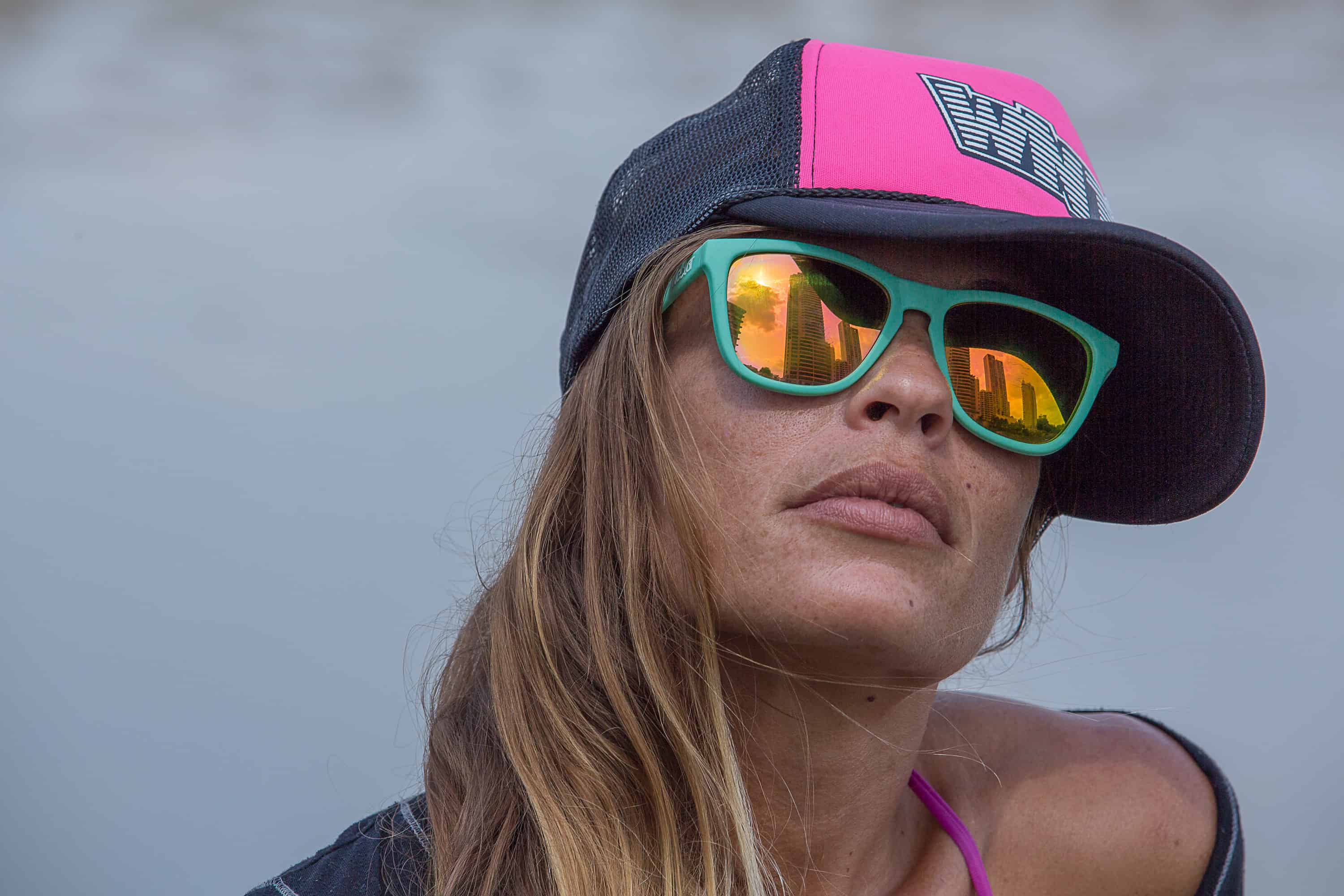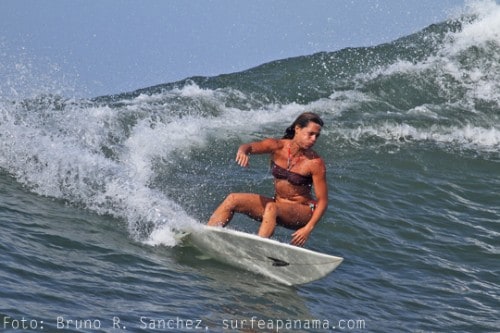Natali Álvarez Sánchez arrives in the lobby of the hotel wearing jean cut-offs, a white mesh tank top, bikini top and coloured mirrored sunglasses: The epitome of hot surfer babe with long, sun-drenched hair and effortless beauty. An Olympic gymnast in her native Venezuela since the age of six, she has been a professional surfer since she was 18 years old.
I was first introduced to Álvarez Sánchez by a documentary at the International Film Festival of Panama. While Rompiendo la ola (Breaking the Wave) is directed by a woman, the film follows the life of three male Panamanian surfers. But when I saw Álvarez Sánchez in one of the scenes, I became curious about her life as a female professional surfer.
At 15, her father died of cancer and she quit gymnastics. She stopped training altogether until, a few years later, she found herself on the water and on a surf board. At 35 years old, she’s a four time champion surfer in Venezuela and recently ranked 9th in the world championships. But she lives in Santa Catalina, Panama, where she fell in love with a fellow surfer, abandoning her middle-class life in Venezuela. She learned to fish and feed herself off the land. “I discovered a new life there. A simple life. I love it,” she says passionately.
While she loves her life in Panama, she thinks the world of surfing has become superficial and has advice and warnings for the next generation of women hoping to make it on the circuit. “Right now it’s all about image and beauty for everybody in surfing but the reality is that to succeed you need only three things: love, consistency and to never quit.” She is a fierce advocate for the “love” of the sport. “This is a lifestyle, not just a sport. The biggest challenge in surfing today is that it’s all about the brands, and selling a plastic life that is not real. You can die surfing and sometimes I don’t feel genuine love from the companies and brands that want to connect with you in the industry.” She has been sponsored by brands in the past but tells me that most contracts are not useful enough for the average surfer. There’s not enough money. “How can I sell the brand if I don’t have the money to travel the circuit?” she says. “They give you a sticker to put on your board but can that sticker feed you? Can you eat the sticker?”
I tell her that while I loved watching Breaking the Wave, I’d love to see a film about women in the surfing industry. She agrees.
“They don’t give us respect, but it’s getting better with every day,” she says. “As a woman in surfing it’s hard. You have a wall to climb. Men are intimidated that I can surf better than them or paddle harder, but I have a taller wall to climb than they do. I have to push myself. Maybe one day we can be equal.”
Fiercely optimistic about her future and grateful for the world of surfing and fishing villages, her biggest piece of advice for all women is, “You can do it, you can do ANYTHING. Any woman can do anything she wants to do. If you really love something and want it with your heart there is nothing stopping you. Do not permit anyone to tell you that you can’t.”




 Follow Us On Instagram
Follow Us On Instagram
